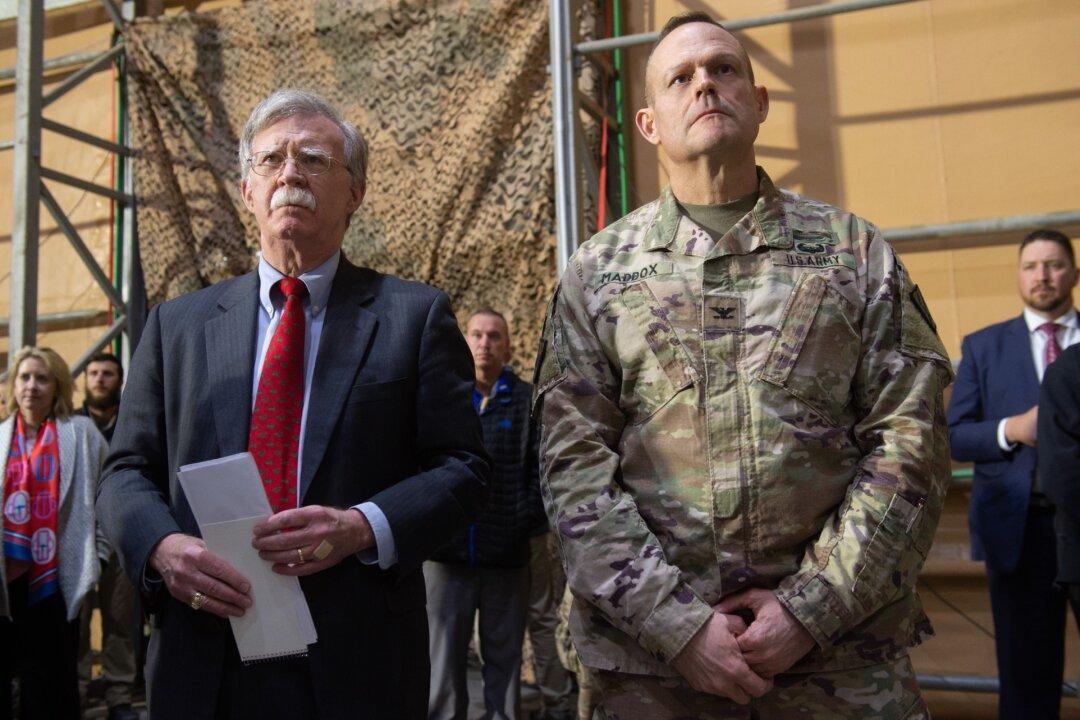The U.S. military withdrawal from Syria includes a requirement that Turkey may not attack Kurdish troops in the region, national security adviser John Bolton told reporters in Jerusalem on Jan. 6.
Bolton detailed the condition, which hadn’t been previously disclosed, in a briefing with the press during a four-day trip to Israel and Turkey. President Donald Trump ordered U.S. troops out of Syria last month but didn’t provide a timeline.





